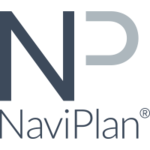Description

NaviPlan

Optionlogy
Comprehensive Overview: NaviPlan vs Optionlogy
As of my last update, NaviPlan and Optionlogy are financial planning software tools with specific purposes and target audiences. Below is an overview of each, along with comparisons and differentiators:
NaviPlan
Primary Functions and Target Markets:
- NaviPlan is primarily a financial planning software designed for financial advisors. It offers in-depth analysis and comprehensive planning capabilities.
- It focuses on retirement planning, estate planning, tax analysis, investment planning, and cash flow management.
- NaviPlan caters to financial advisers, planners, and wealth management firms who require detailed and accurate financial plans for their clients.
Market Share and User Base:
- NaviPlan is one of the leading financial planning tools used by financial advisors, often competing with other major players like eMoney and MoneyGuidePro.
- Its user base typically includes larger financial institutions and advisors focused on high-net-worth individuals due to its complex and detailed planning capabilities.
Optionlogy
Primary Functions and Target Markets:
- Optionlogy is specialized software aimed at options traders. It provides tools for analyzing, executing, and monitoring options trading strategies.
- It includes features such as strategy backtesting, risk management, and advanced analytics specific to options.
- The target market for Optionlogy includes individual traders, hedge funds, and financial professionals who focus on options trading.
Market Share and User Base:
- Optionlogy's market presence is more niche compared to general financial planning software. It primarily attracts users focused on options markets rather than broader financial planning.
- Its user base is typically smaller than comprehensive financial planning tools like NaviPlan, but highly specialized in options trading.
Key Differentiating Factors
-
Purpose and Functionality:
- NaviPlan offers a broad range of financial planning services covering various aspects of an individual’s or family’s financial life, while Optionlogy is dedicated specifically to options trading.
-
Target Audience:
- NaviPlan’s focus is on financial advisers providing holistic planning services, whereas Optionlogy is designed for traders and financial professionals specializing in options.
-
Complexity and Depth:
- NaviPlan is known for its detailed and complex planning capabilities, suitable for high-net-worth clients and large institutions.
- Optionlogy, by comparison, provides depth in the area of options trading analytics and strategy execution, which requires a different kind of expertise and focus.
-
Integration and Tools:
- NaviPlan often integrates with other financial tools and platforms used by advisers to create a seamless financial advisory process.
- Optionlogy offers specialized tools and analytics distinct to the trading and risk management needs of options traders.
-
User Experience:
- NaviPlan is designed for comprehensive planning over longer time horizons, requiring a deep dive into personal financial situations.
- Optionlogy is geared toward providing real-time analytics and execution support for traders who need quick analysis and decision-making capabilities.
Overall, while NaviPlan and Optionlogy both serve financial professionals, they cater to very different needs and markets within the financial industry. As of my last update, specific market share statistics were not readily available, so it would be beneficial to consult recent industry reports or surveys to understand their current market positions.
Contact Info

Year founded :
Not Available
Not Available
Not Available
Not Available
Not Available

Year founded :
Not Available
Not Available
Not Available
India
http://www.linkedin.com/company/optionlogy-com
Feature Similarity Breakdown: NaviPlan, Optionlogy
When analyzing financial planning and analysis software like NaviPlan and Optionlogy, it's essential to understand how their features align, diverge, and what sets them apart. Here's a breakdown based on common themes, though specific features might vary based on software versions and updates:
a) Core Features in Common
-
Financial Planning and Analysis:
- Both NaviPlan and Optionlogy support comprehensive financial planning, allowing users to create detailed financial analyses and projections.
-
Scenario Modeling:
- They offer scenario modeling for financial forecasts, enabling users to simulate various financial outcomes based on different assumptions.
-
Client Reporting:
- Each provides tools for generating client reports, which summarize financial strategies, performance, and recommendations.
-
Investment Analysis:
- Both platforms support some form of investment analysis, helping users evaluate potential investment strategies.
-
Data Integration:
- They typically feature the ability to integrate with other financial data sources, ensuring up-to-date and accurate financial information.
b) Comparison of User Interfaces
- NaviPlan:
- NaviPlan usually features a more structured, wizard-driven interface designed to guide users through the financial planning process. This is beneficial for users who prefer step-by-step guidance.
- Optionlogy:
- Optionlogy's interface might be more tailored to the needs of users comfortable with financial modeling. It may offer flexibility and direct access to modeling tools, which could be preferable for advanced users who want to dive into specific analyses without a guided sequence.
c) Unique Features
-
NaviPlan:
- Comprehensive Tax Planning: NaviPlan often includes detailed tax planning tools, offering robust support for understanding and minimizing tax implications over long-term financial plans.
- Insurance Needs Analysis: It provides strong capabilities for evaluating insurance needs, which could be essential for comprehensive personal financial planning.
-
Optionlogy:
- Options Trading Focus: Optionlogy is likely to be more focused on strategies around options trading, offering specific tools and resources for analyzing and executing options strategies, a feature that might not be as developed in NaviPlan.
- Market Data and Analytics: Advanced market data integration and analytical tools for securities may be more prominent in Optionlogy, catering to users who are more focused on trading and market analytics.
These analyses can serve as a general guide, though users should consult each product directly for the most current and specific feature sets. Additionally, usability and specific interfaces might vary with new releases or updates.
Features

Risk Management
Data Integration
Client Interaction
Financial Planning
Reporting and Compliance

User Dashboard
Performance Analytics
Collaboration Tools
Financial Planning
Security
Best Fit Use Cases: NaviPlan, Optionlogy
NaviPlan
a) For what types of businesses or projects is NaviPlan the best choice?
NaviPlan is a financial planning software primarily used in the financial services industry. It is best suited for:
-
Financial Advisors and Planners: NaviPlan provides detailed and sophisticated financial planning tools for advisors working with individual clients on retirement planning, investment strategies, estate planning, tax optimization, and education funding.
-
Wealth Management Firms: Firms that manage substantial assets can leverage NaviPlan’s detailed analytics and robust scenario analysis to better serve high-net-worth clients and create comprehensive financial plans.
-
Banking and Insurance Companies: These institutions can utilize NaviPlan for offering detailed financial planning services to their clients, helping with personalized investment advice and retirement strategies.
NaviPlan is particularly effective for entities looking for deep customization and detailed reporting capabilities in their financial planning processes.
b) In what scenarios would Optionlogy be the preferred option?
Optionlogy is a platform designed for options trading analytics and strategies. It would be the preferred choice for:
-
Professional Traders and Hedgers: Those who require advanced options trading analytics, strategy optimization, and risk management tools would benefit from Optionlogy’s offerings.
-
Financial Institutions Focused on Derivatives: Banks, hedge funds, and trading firms that are heavily involved in derivatives trading can use Optionlogy to optimize their trading strategies and manage complex portfolios.
-
Educational Institutions Offering Finance Courses: Universities or educational institutions with a focus on finance and investments may use Optionlogy as a teaching tool to help students understand options and trading strategies in practical settings.
Optionlogy is designed to cater to those who need advanced analytical tools and comprehensive data for making informed decisions in the options market.
d) How do these products cater to different industry verticals or company sizes?
-
NaviPlan: This software is tailored more towards individual financial advisors, small to medium-sized financial advisory firms, and larger financial institutions like banks and insurance companies. It is highly customizable and can cater to different verticals within the financial services industry due to its ability to handle complex financial scenarios and a wide range of client needs. NaviPlan scales well to fit the size and scope of different organizations, from single advisors to large teams.
-
Optionlogy: It serves a niche market focused on options and derivatives trading. While it can be utilized by individual traders and small trading firms, its features are particularly beneficial for larger financial institutions that require in-depth market analysis and risk management capabilities. Optionlogy is focused on providing high-level quantitative tools and therefore caters to a more specialized segment of the financial market.
Both products serve different purposes and are tailored to meet the demands of specific segments within financial services, whether that be comprehensive financial planning or specialized options trading analytics.
Pricing

Pricing Not Available

Pricing Not Available
Metrics History
Metrics History
Comparing teamSize across companies
Conclusion & Final Verdict: NaviPlan vs Optionlogy
To provide a conclusion and final verdict for NaviPlan vs. Optionlogy, we need to consider various factors such as features, pricing, ease of use, customer support, and overall effectiveness. Here’s a comprehensive evaluation:
Conclusion and Final Verdict
a) Considering all factors, which product offers the best overall value?
NaviPlan tends to offer the best overall value for financial advisors and planners looking for a comprehensive, robust financial planning solution. While both products have their unique strengths, NaviPlan's depth in standard and advanced planning, coupled with its ability to handle complex scenarios, typically makes it the better choice for more detailed financial planning needs.
b) Pros and Cons of Choosing Each Product
NaviPlan:
-
Pros:
- Comprehensive Features: Offers a wide range of planning tools for both basic and advanced financial planning.
- Scalability: Suitable for both small practices and large enterprises.
- Integration: Seamlessly integrates with other financial services and platforms.
- Advanced Analytics: Offers in-depth analysis for investment strategies and retirement planning.
-
Cons:
- Complexity: Can be overwhelming for beginners or those looking for simple solutions.
- Cost: Generally more expensive, which can be a barrier for smaller operations.
- Learning Curve: Requires a significant time investment to fully utilize its capabilities.
Optionlogy:
-
Pros:
- User-Friendly: Generally easier to use, suitable for those new to financial planning tools.
- Niche Focus: Ideal for professionals specifically focused on options trading and strategy.
- Affordability: Likely more cost-effective, especially for individuals or smaller teams.
- Specialized Tools: Offers strong functionalities for options analysis and strategies.
-
Cons:
- Limited Scope: Primarily focused on options trading, may lack the comprehensive financial planning features needed by broader financial services.
- Integration: May not integrate as seamlessly with other financial platforms.
- Depth: Might not provide the in-depth planning tools required for complex financial scenarios.
c) Specific Recommendations for Users Deciding Between NaviPlan vs Optionlogy
-
Assess Your Needs:
- If you require a comprehensive financial planning tool with extensive features for complex planning and a variety of financial products, NaviPlan is the preferable choice.
- If your primary focus is on options trading and you prefer a straightforward, specialized tool with lower costs, Optionlogy might be more suitable.
-
Consider Your Budget:
- For those with a larger budget for software and who place value on intricate financial strategy development, NaviPlan’s pricing might be justified by its capabilities.
- For tighter budgets, especially where the primary interest lies in options, Optionlogy offers a more economical entry point.
-
Experimentation:
- Take advantage of trials or demos. Testing both platforms in a live environment can offer insights into workflow and usability that written evaluations might not capture.
-
Future Needs:
- Consider the potential for growth in your practice and future needs - NaviPlan offers scalability and extensive capabilities for evolving financial scenarios.
-
Integration Requirements:
- Evaluate the platforms and services you currently use and ensure compatibility with your choice of financial planning tools.
In conclusion, while both NaviPlan and Optionlogy offer valuable features, NaviPlan emerges as the more versatile solution for comprehensive financial planning, whereas Optionlogy excels in catering to the niche of options trading. The final decision should align with specific professional needs, financial capacity, and long-term strategic goals.




